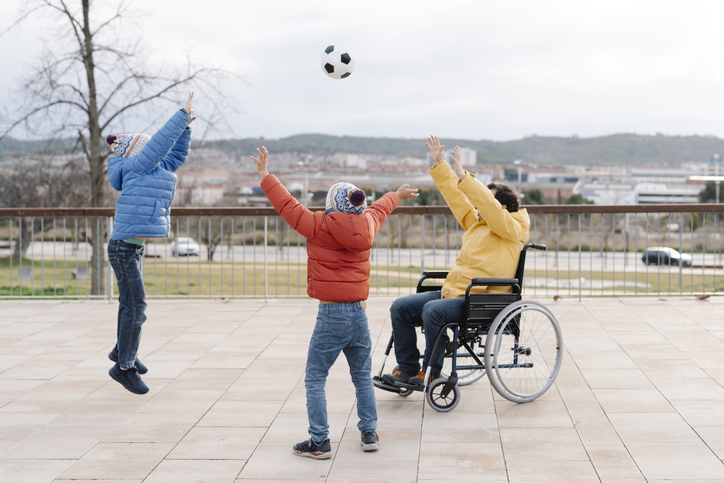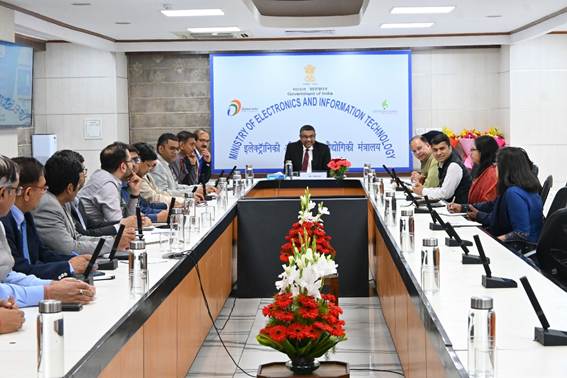The International Day of Persons with Disabilities (IDPD), observed annually on December 3, serves as a global reminder of the importance of fostering inclusivity and recognizing the invaluable contributions of persons with disabilities (PwDs). The theme for this year, “Amplifying the leadership of persons with disabilities for an inclusive and sustainable future,” calls on the world to take further steps towards ensuring that PwDs are given equal opportunities to lead and contribute to societal progress.
A Shift Towards Inclusivity
The United Nations has long championed the rights of PwDs, with the declaration of IDPD in 1992 to increase awareness about the challenges faced by disabled individuals and promote their well-being. The adoption of the Convention on the Rights of Persons with Disabilities (CRPD) in 2006 further strengthened global commitments to disability rights, aligning them with the broader goals of the 2030 Agenda for Sustainable Development.
Disability rights in India
India has made significant strides in addressing disability rights. The introduction of the Accessible India Campaign (Sugamya Bharat Abhiyan) in 2015 was a landmark initiative aimed at creating a barrier-free environment for PwDs. This campaign targets the improvement of public infrastructure, transportation, and communication systems, ensuring that every Indian, regardless of ability, has access to the resources needed to live a full and active life.
A defining moment in India’s approach to disability empowerment came in 2015, when Prime Minister Narendra Modi introduced the term ‘Divyangjan’ to refer to persons with disabilities. The term, meaning “persons of divine abilities,” reflects a profound shift in perspective, moving away from viewing disability as a limitation to acknowledging it as a unique ability that adds value to society. This initiative was not just a change in language, but a powerful statement about the government’s commitment to reshaping societal attitudes towards PwDs.
Empowering Divyangjan: Government Initiatives
The Indian government has rolled out a series of initiatives aimed at empowering Divyangjan and ensuring their integration into every aspect of society. The Department of Empowerment of Persons with Disabilities, which was established in 2012 and later renamed in 2014, has been central to coordinating efforts across ministries, states, and NGOs to create a more inclusive environment.
Noteworthy government schemes include
Deendayal Divyangjan Rehabilitation Scheme (DDRS)
This initiative supports NGOs working on projects that help PwDs achieve their maximum potential through rehabilitation and social inclusion efforts.
District Disability Rehabilitation Centres (DDRC)
These centres focus on early identification and intervention, while also providing essential assistive devices and loans for self-employment.
PM-DAKSH Yojana: This skill training platform connects PwDs with employment opportunities across the country, helping bridge the gap between job seekers and employers.
Additionally, the Divya Kala Mela stands out as an important national event celebrating the contributions of Divyangjan artisans. It provides a platform for these individuals to showcase their craft, highlighting their skills and talents in the face of adversity.
The Vision of an Accessible India
The Indian government’s efforts to improve accessibility align with the vision of Sabka Saath, Sabka Vikas, Sabka Vishwas. Since 2014, accessibility-related issues have been a priority, with major steps taken to ensure that public spaces such as airports, railway stations, and transportation systems are accessible to all.
According to the 2011 Census, India has over 2.68 crore PwDs, accounting for 2.21% of the population. The government’s ongoing efforts through initiatives like the Accessible India Campaign aim to create a truly inclusive society, one where Divyangjan are not seen as individuals with limitations, but as active contributors to the country’s cultural and economic life.




















